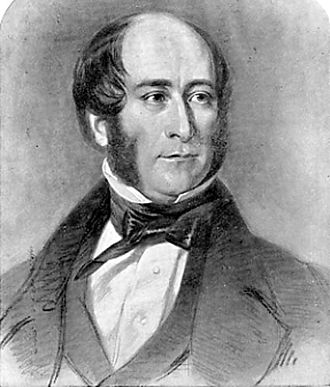Litany To The Holy Spirit Peter Hurford
An anthem written for unison voices.
In the hour of my distress,
When temptations me oppress,
And when I my sins confess,
Sweet Spirit, comfort me!
When I lie within my bed,
Sick in heart and sick in head,
And with doubts discomfited,
Sweet Spirit, comfort me!
When the house doth sigh and weep,
And the world is drowned with sleep,
Yet mine eyes the watch do keep,
Sweet Spirit, comfort me!
Peter Hurford was born in Minehead, Somerset, to Gladys Hurford (née James) and Hubert Hurford, a solicitor. He was educated at Blundell's School in Tiverton, Devon. He later studied both music and law at Jesus College, Cambridge, graduating with dual degrees, and afterwards obtained a reputation for both musical scholarship and organ playing. Hurford subsequently studied in Paris under the French organist André Marchal, exploring music of the Baroque period.
He made interpretations of Bach, and recorded the complete Bach organ works for Decca and BBC Radio 3. His expertise also encompassed recordings of the Romantic literature for organ, performances notable for attention to stylistic detail. His playing style is noted for clean articulation, beauty of expression, and a sense of proper tempo.
Hurford was appointed organist of Holy Trinity Church, Leamington Spa from 1956 to 1957. For the same period, he was Music Master at Bablake School, Coventry, and Musical Director of the Royal Leamington Spa Bach Choir. He was then appointed organist and choirmaster of St Albans Cathedral in 1958, serving in this post for twenty years. He conceived the idea of an organ competition in 1963, partly to celebrate the new Harrison & Harrison organ designed by Ralph Downes and himself. This venture was successful mainly because of the young Hurford's rapidly growing stature in Britain and overseas as a result of his refreshing notions of the "authentic performance style". This has grown into the biennial St Albans International Organ Festival, a world-renowned festival of organ music with competitions whose past winners include many of the great names in modern organ music including Dame Gillian Weir, David Sanger, Thomas Trotter and Kevin Bowyer.
Hurford travelled extensively for both his performance and recording career. He was artist in residence at Cincinnati, Ohio University (1967–68), Toronto, Canada (1977), and consultant for the Sydney Opera House organ. He held a number of Honorary Doctorates, was appointed an Honorary Fellow of Jesus College, Cambridge in 2006, was a past President of the Royal College of Organists and received its Medal in 2013, and has been appointed an Officer of the Order of the British Empire (OBE). He wrote a book: Making Music on the Organ (1998, Oxford University Press, ISBN 0-19-816207-3) and published a great deal of choral music for the Anglican liturgy, much of it issued by leading publishers such as Novello and Oxford University Press. His Litany to the Holy Spirit, to a famous text by Robert Herrick, is sung worldwide.
Hurford suffered a minor stroke in 1997, but recovered enough to resume his performing career seven months later. In 2008, he was diagnosed with Alzheimer's Disease, and subsequently retired formally from performing in 2009.
 |
| Taken from his obituary notice in The Guardian. |
Hurford died on 3 March 2019, aged 88.
Litany to the Holy Spirit was written in 1958, set to a text by Robert Herrick (1591-1674)
Born in Cheapside, London, Robert Herrick was the seventh child and fourth son of Julia Stone and Nicholas Herrick, a prosperous goldsmith. He was named after an uncle, Robert Herrick (or Heyrick), a prosperous Member of Parliament (MP) for Leicester, who had bought the land Greyfriars Abbey stood on after Henry VIII's dissolution in the mid-16th century. Nicholas Herrick died in a fall from a fourth-floor window in November 1592, when Robert was a year old (whether this was suicide remains unclear).
The tradition that Herrick received his education at Westminster is based on the words "beloved Westminster" in his poem "Tears to Thamesis", but the allusion is to the city, not the school. It is more likely that he, like his uncle's children, attended The Merchant Taylors' School. In 1607 he became apprenticed to his other uncle, Sir William Herrick, a goldsmith and jeweller to the king. The apprenticeship ended after only six years, when Herrick, aged 22, gained admission at St John's College, Cambridge. He later migrated to Trinity Hall, graduating in 1617. Herrick became a member of the Sons of Ben, a group centred on an admiration for the works of Ben Jonson, to whom he wrote at least five poems. Herrick was ordained into the Church of England in 1623 and in 1629 became the vicar of Dean Prior in Devonshire.
In 1647, in the wake of the English Civil War, Herrick was ejected from his vicarage for refusing the Solemn League and Covenant. He returned to London to live in Westminster and depend on the charity of his friends and family. He spent some time preparing his lyric poems for publication and had them printed in 1648 under the title Hesperides; or the Works both Human and Divine of Robert Herrick, with a dedication to the Prince of Wales.
When King Charles II was restored to the throne in 1660, Herrick petitioned for his own restoration to his living. He had obtained favour by writing verses celebrating the births of both Charles II and his brother James before the Civil War. Herrick became the vicar of Dean Prior again in the summer of 1662 and lived there until his death in October 1674, at the age of 83. His date of death is unknown, but he was buried on 15 October.
Herrick was a bachelor all his life. Many of the women he names in his poems are thought to be fictional. He is buried in the churchyard of St George the Martyr parish church, Dean Prior.
Biographies taken from Wkipaedia.




